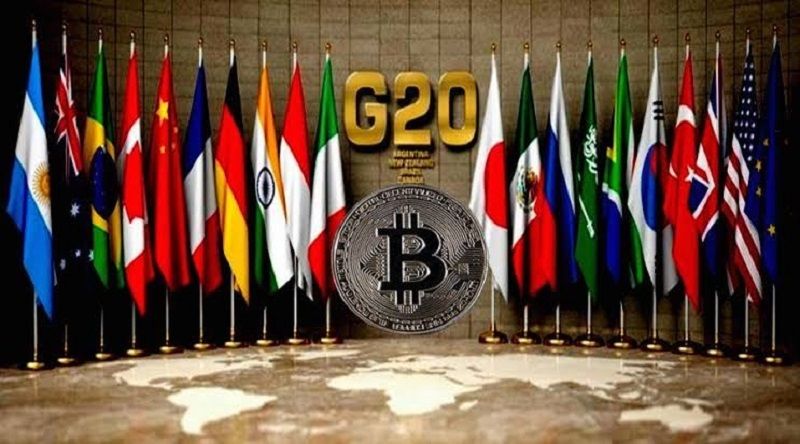G20, African Union Adopts IMF-FSB Synthesis Paper on Crypto Regulation

The G20, or Group of Twenty, an intergovernmental forum consisting of 19 sovereign countries, the European Union, and the African Union, unanimously adopted the "G20 Finance Ministers and Central Bank Governors Communique" on Thursday, October 12, 2023, during its ongoing meeting in Marrakesh, Morocco.
The fourth and final meeting of the G20 Finance Ministers and Central Bank Governors (FMCBGs) under the Indian Presidency is now taking place in Marrakech (Thursday–Friday) on the fringes of the International Monetary Fund-World Bank Annual Meetings.
G20 members accepted the crypto regulatory roadmap proposed in a joint report by the International Monetary Fund (IMF) and the Financial Stability Board (FSB) in September titled “IMF-FSB Synthesis Paper: Policies for Crypto-Assets.
The G20 states: “We call for swift and coordinated implementation of the G20 Roadmap, including implementation of policy frameworks; outreach beyond G20 jurisdictions; global coordination, cooperation, and information sharing; and addressing data gaps.”
The IMF-FSB paper advocates for comprehensive oversight of crypto instead of a blanket ban. Its high-level recommendations include cross-border cooperation and information sharing between regulators, a demand for comprehensive governance and risk management frameworks for crypto companies, and a guarantee of access to relevant data provided by companies to the authorities.
According to the paper, the first review of the proposed measures’ implementation status should happen by the end of 2025.
India’s Ministry of Finance confirmed the adoption of the roadmap on Friday, posting on his official X handle, “In the spirit of #OneEarthOneFamilyOneFuture and following full consensus by the #G20 members, the Fourth #G20 Finance Ministers and Central Bank Governors Communique was adopted today in Marrakech, Morocco.”
In October, the IMF published another working paper titled “Assessing Macrofinancial Risks from Crypto Assets.” Within it, IMF researchers propose a crypto risk assessment matrix for countries to spot indicators and triggers of potential risks in the sector.
Regulators worldwide have been calling for a global framework on crypto recently. Mário Centeno, the governor of Portugal’s central bank, urged international cooperation to set up a “robust framework” and avoid the possibility of “regulatory arbitrage.” A similar sentiment was expressed by the executive director of strategy, policy, and control at the German Federal Financial Supervisory Authority, who highlighted the inconsistencies existing on a global scale.
However, it’s worthy of note that this adoption is not legally binding on the member countries. While G20 member states may choose to incorporate the recommended principles into their national regulatory frameworks, they are not obligated to do so.
The adoption serves more as a collective recognition of the importance of addressing cryptocurrency issues at the global level. The fact that the Synthesis Paper is a recommendation highlights the sovereignty of G20 member states in determining their regulatory paths. Each nation may consider its own unique economic and security concerns when addressing cryptocurrencies.
